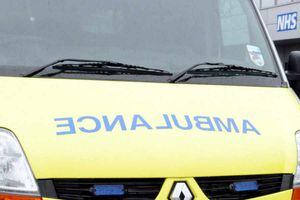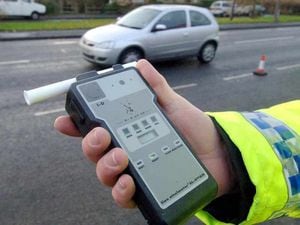Attacks on ambulance staff double in five years
Attacks on ambulance staff in the West Midlands have almost doubled in five years – but just 20 per cent of offenders have been punished by police and the courts.

West Midlands Ambulance Service workers suffered 325 physical assaults in 2017/18, up from 175 in 2012/13.
But out of the 1,597 attacks across the six years, just 20 per cent led to police or court action, 324 cases.
Civil actions such as warning letters were sent out in 10 per cent of the cases, 158.
The figures have come from union GMB, which has compiled the number of attacks from all ambulance services in the country. They also rose 34 per cent in the five years.
Examples of violent attacks reported by GMB members include being bitten, stabbed and having blood spat at them by drug users.
It is ahead of a vote by MPs on Friday over tougher sentences for attacks on emergency workers.
The Assaults on Emergency Workers (Offences) Bill would introduce a new offence of common assault against an emergency worker and require courts to treat attacks on emergency workers as an aggravating factor for sentencing purpose.
Sick leave
A survey by the union of 500 ambulance staff across the UK also found 37 per cent had considered leaving their job due to the threat of violence.
And 21 per cent of ambulance staff had to take sick leave due to violent assaults
Kevin Brandstatter, GMB NHS National Officer, said: “No one should be told that facing violence is just ‘part of the job’.
"The number of attacks faced by ambulance workers as they try to save lives is beyond unacceptable.
“Our members do their jobs with complete professionalism - but everyone has their breaking point.
“As lone working becomes more common and cuts to services bite, ambulance workers are increasingly vulnerable to violence in the line of duty.
“Changing the law will be an important first step as current sentences aren’t providing an adequate deterrent.
“MPs must back emergency workers by backing this crucial legislation on Friday and widening its scope to include sexual assaults.
“The best laws will only be effective if they are enforced. Ambulance workers are there we when the public need them – and now they need us all to stand up for them.”
Claire Brown, a spokeswoman for West Midlands Ambulance Service, said: “The trust welcomes the new Private Members Bill to provide emergency workers with enhanced protection. Unfortunately, our figures show a continuation of the ongoing trend of assaults on staff over the last few years.
“Employees have the right to work without fear of violence or intimidation.
“It is never appropriate for staff to be abused verbally or physically and the Trust will take whatever action is appropriate to mitigate risks of harm.”





